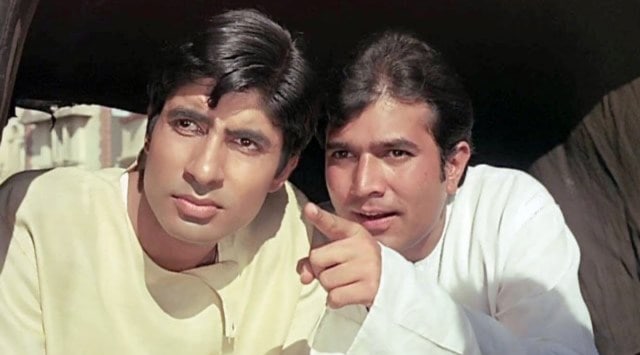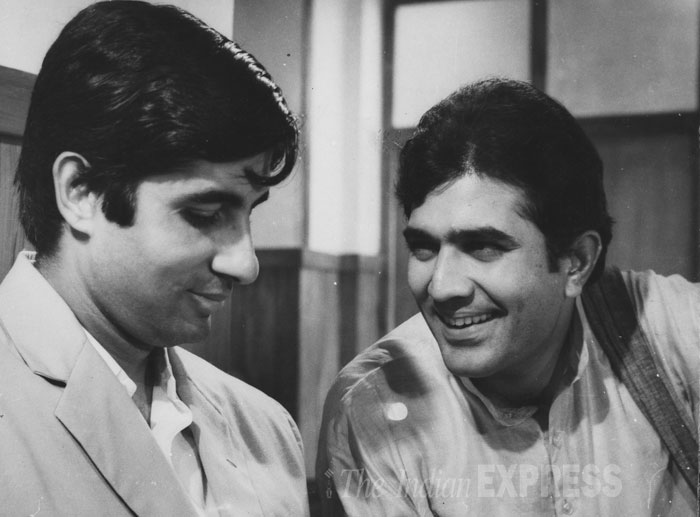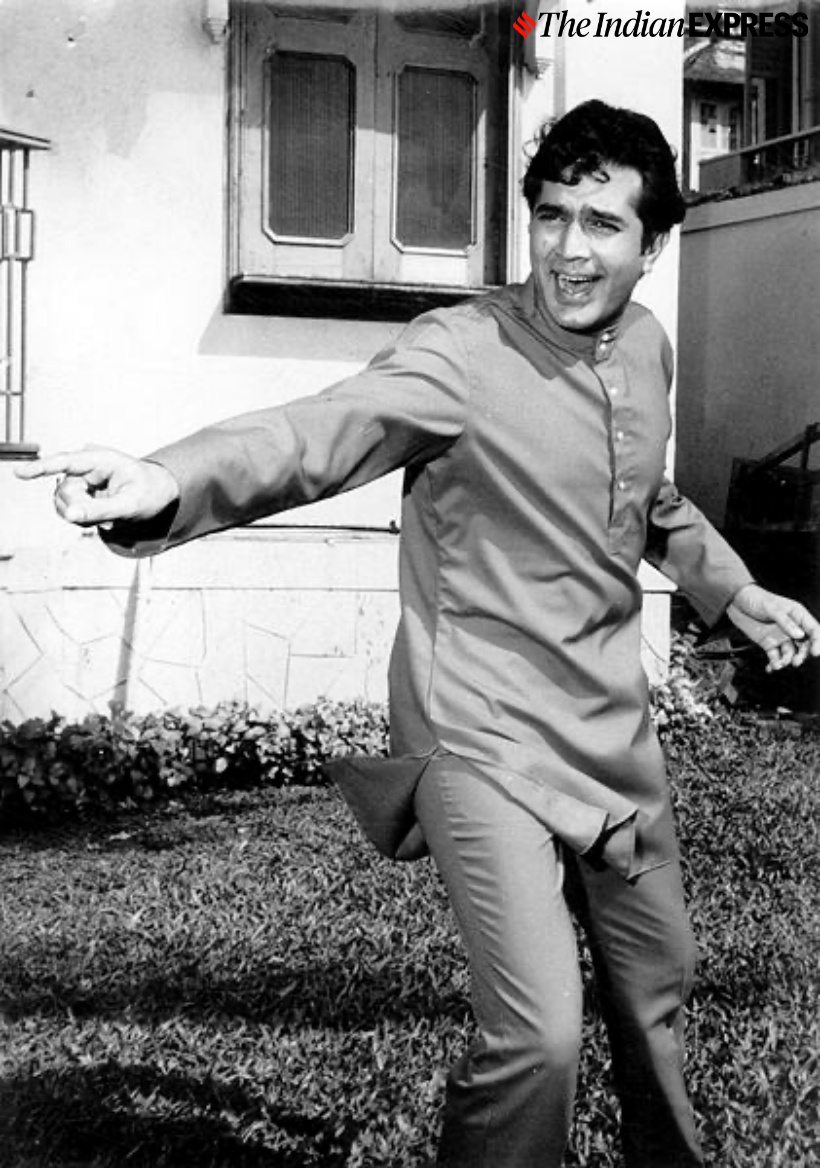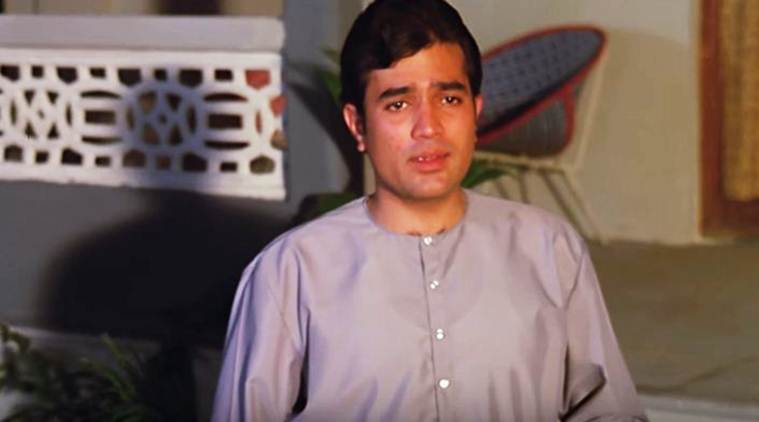Click here to follow Screen Digital on YouTube and stay updated with the latest from the world of cinema.
As Anand turns 51, revisiting the film whose code is fast disappearing from India
Rajesh Khanna’s Anand is oblivious of any religious affiliations, caste or social status of others. He is equally cordial with Raghu Kaka (the cook at Bhaskar’s home), Mrs Disa and Issabhai.
 Rajesh Khanna and Amitabh Bachchan (left) in Anand.
Rajesh Khanna and Amitabh Bachchan (left) in Anand.Hrishikesh Mukherjee’s Anand (1971) is unabashed about death, not in an insensitive way but more as a seed of thoughtful transcendence. The irrevocable destiny of protagonist Anand is revealed within minutes into the film. Mukherjee uses the hero’s finality as the main plot point to subvert the story of an untimely death, to a narrative of optimism, interfaith and harmony.
For Mukherjee in all this, there lies a bigger story and that’s about life itself, its joy de vivre.
Uncomplicatedly structured, Anand is a simple story of a namesake man; Anand Sehgal diagnosed with a rare form of cancer, facing an irrevocable destiny. He is aware that his days are numbered and yet shows no sign of giving up on life.
On the contrary, Anand quickly befriends everyone around him, including his oncologist Bhaskar Banerjee, well known for his no-nonsense personality, from his medical college days. Soon they develop an unprecedented attachment, until death abruptly terminates their friendship.
 Rajesh Khanna and Amitabh Bachchan in Anand. (Express Archive Photo)
Rajesh Khanna and Amitabh Bachchan in Anand. (Express Archive Photo)
In this unassuming but intense storytelling that otherwise gels perfectly with the Indian cultural context, where one’s own family and mohalla are treated equally dear, what is so distinct about Anand, a film that was produced fifty years ago?
The answer lies in the characterisation of the protagonist Anand Sehgal, co-written by Hrishikesh Mukherjee and Gulzar. Gulzar also wrote the dialogues for the film.
At the core of this characterisation, there is a subversion. Unlike the depiction of heroes about to meet death, Anand is not overwhelmed by his skulking destiny. Neither is he grim nor melancholic but abounds with energy and joy. Amidst his depleting health, he can look at the lighter side of life, unshaken by any situation that life randomly throws at him.
Such is his vivacity, that in the later part of the story, Anand even accuses Bhaskar of making him morose. He exasperatingly says, “None have ever witnessed one’s own death but I am really unfortunate that I see it every minute in your eyes (Aaj tak kisi ne apne maut nehi dekhi ho, par mai woh abhaga hoon jo har pal, har lamha who dekh raha hai, tumhari aankhon mein.)”
Anand, the film, is a life-affirming tale and the writer-filmmaker duo never retreats from this perception. This cinematic humanism inevitably stems from Hrishikesh Mukherjee’s training under the legendary Bimal Roy. By the time he got into directing Anand, Mukherjee had already directed Anupama (1966) and Satyakam (1969) both known for their nuanced depiction of relationships.
Gulzar adds to this universe full of characters with complex lives.
When he co-wrote Anand, Gulzar had already penned the lyrics of pathbreaking Bandini (1963) a film that talks about the reformation of jail inmates, worked with Hrishikesh Mukherjee in his Ashirwad (1968) and had got noticed for tender lyrics of Khamoshi (1969), directed by Asit Sen.
The camaraderie amongst these Bimal Roy protegees was evident and got only enhanced by their common worldviews shaped by larger realities of the then India like wars, insolvency, student movements. With such a cinematic approach, Anand could not have been anything but what it stands for.
Pertinently in Musafir (1957), Mukherjee’s first directorial, he broke the stereotype of a happy ending. His hero dies at the end, and that death is portrayed subtly, innocuously onscreen. Fourteen years later when he directed Anand, Mukherjee continued on the same path, scripting a serious storyline of life vs death, championing life all through. His and Gulzar’s Anand Sehgal emerges as an egalitarian at heart, always bemused with the idea of meeting and loving complete strangers on the road, who he refers to as Muralilal, a long-lost friend.
 Rajesh Khanna in Anand.
Rajesh Khanna in Anand.
The strangers don’t seem to be offended by Anand’s peculiar antics of befriending them. On the contrary, they too are smitten by Anand. He manages to win the heart of the most unlikely, the motherly but regimental Mrs Disa, matron of the nursing home where he is being treated.
In these buddy acts, Anand is oblivious of any religious affiliations, caste or social status of others. He is equally cordial with Raghu Kaka (the cook at Bhaskar’s home) and Mrs Disa or even Dr Bhaskar, the oncologist.
Anand’s obliviousness is shown in more than one scene. In one instance, Anand meets Raghu Kaka for the first time and instantly reveals his love for good food. Soon he starts treating the elderly cook as his own, ignoring his domestic help status. In another situation, over a poignant conversation, Anand desires to be Mrs Disa’s son on rebirth.
In his signature spontaneity, he even remarks, “I will convince Lord Shiva (Main Shivji ko mana lunga),” clearly upholding the idea of communal harmony.
Neither Mukherjee nor Gulzar had been hesitant in using such dialogues. The dialogues never sound put on but rather unprompted, blending well with the personality of Anand. Further in the story, his search for Murarilal – (a brilliant script device to highlight Anand’s nature, his love for friends and appetite for life), makes him accidentally meet Issabhai Suratwala (Johnny Walker), a Muslim man and an amateur, theater director of Gujarati origin. They instantly hit it off over theatre rehearsals, banters and hilarious moments. Anand starts addressing him as Guru (mentor) and Issabhai reciprocates by calling him, Chela (disciple)
As the script leads to its climax, a sequence of tense scenes is crafted. By then audiences are empathising with Anand and rooting for his miraculous recovery.
Like his onscreen well-wishers who cut across faith, caste, creed, the audience too is undivided in commiserating with Anand as if he is their own — a friend, a brother, or even an estranged lover, dear to anyone who has ever been in love with life.
 Hrishikesh Mukherjee’s Anand was released 51 years ago on this date.
Hrishikesh Mukherjee’s Anand was released 51 years ago on this date.
This is the magic of the film made fifty-one years ago. It had unified the audience across the country.
In these utterly divisive times, Anand stands its ground for egalitarian storytelling, glowing in its lessons of interfaith and joy de Vivre!
Nilosree Biswas is a filmmaker, author most recently of Banaras Of Gods, Humans And Stories.
- 01
- 02
- 03
- 04
- 05


































